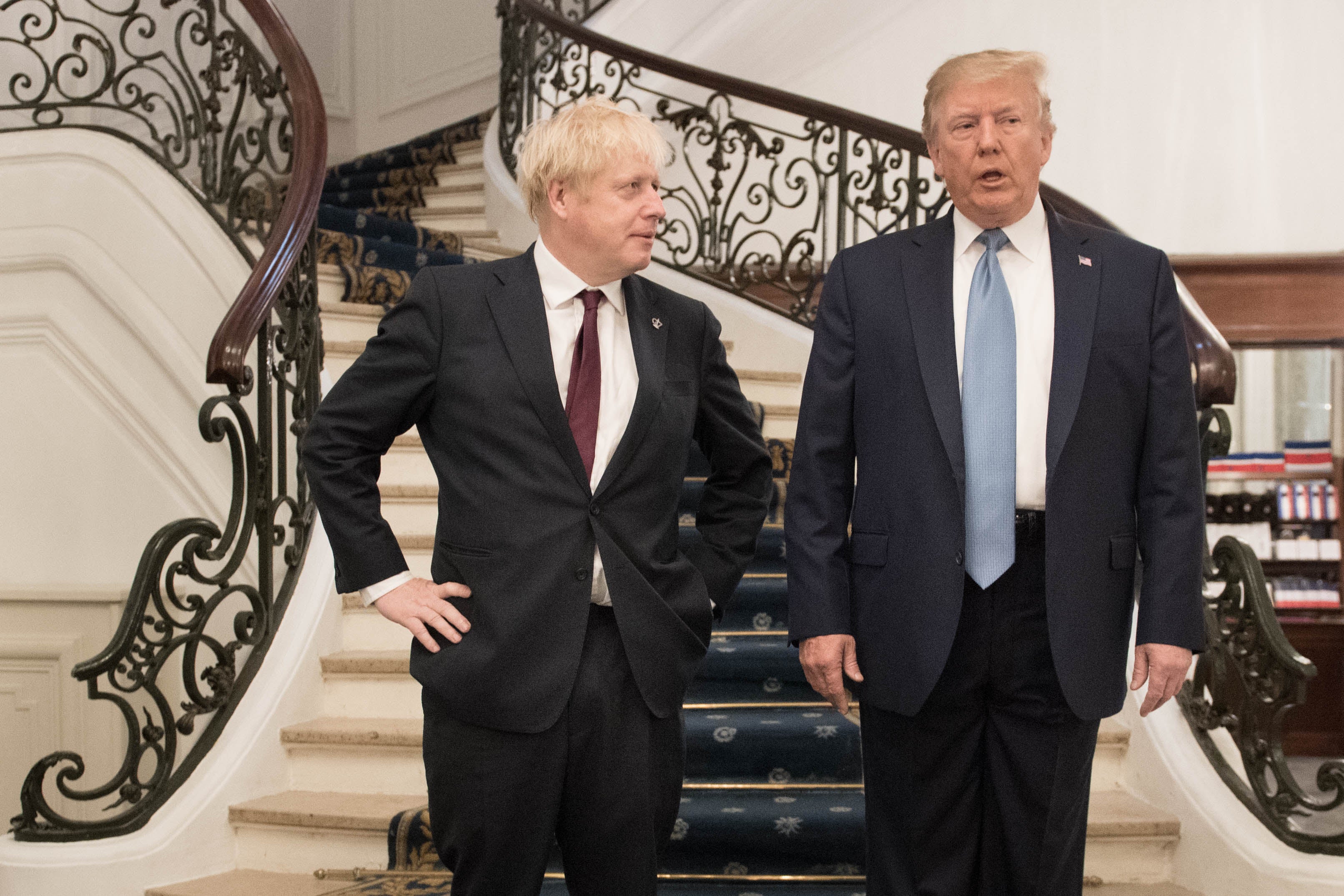Boris Johnson took some stick for sticking to code of silence on US election
Elections in friendly countries abroad are a diplomatic minefield for governments, writes Andrew Woodcock


For days after polls closed in the US presidential election, one issue dominated conversations around the globe. Who’s going to win? What will Trump do? What does it mean for the world?
Only one voice was absent from the debate – that of Boris Johnson and the British government.
The Johnson administration’s vow of silence extended to the ridiculous extreme that Downing Street refused even to say whether, in principle, the prime minister felt that in democratic elections generally all votes should be counted.
Until Joe Biden was finally confirmed as president-elect, the PM confined himself to expressions of confidence in the US electoral system, and certainty that he will work closely with whoever emerges as the winner.
Labour seized on his reluctance to comment, with shadow cabinet minister Emily Thornberry saying it was “shocking” he had not called out Donald Trump’s attempts to undermine confidence in the election with baseless claims of voter fraud.
But in reality, the PM had little choice but to fast to a long-standing convention that the government does not comment on elections in friendly countries.
While the UK can happily denounce electoral irregularities in countries like Belarus, any suggestion that London is passing judgement on voting in the US would be regarded with horror by diplomats.
Whatever his personal preferences and political calculations, Mr Johnson – who has forged a close relationship with Trump but has never met Biden – was all too aware that he would have to get along with either as US president, and could not afford to alienate one by appearing to back the other.
Loose lips now can lead to excruciating moments later, as the PM found to his own cost as Trump entered the White House shortly after Johnson had denounced him when mayor of London as “clearly out of his mind”, “stupefyingly ignorant” and “unfit to be president”.
The PM’s 2016 comment that Barack Obama’s “part-Kenyan” heritage gave him an “ancestral dislike” of Britain is understood to have gone down very badly with Biden, who last year called Johnson “a physical and emotional clone” of Trump.
Challengers for the presidency often seek invitations to foreign capitals in the run-up to the election, to burnish their image as international statesmen, but the requests are usually turned down by hosts nervous of being seen to take sides.
And the trick can backfire, as Republican candidate Mitt Romney found on a visit to Downing Street in 2012, when he ended up being publicly rebuked by both David Cameron and Mayor Johnson for suggesting London may not be ready to host the Olympics.
The Biden camp avoided this risk by making clear it wanted no contact with foreign governments during the campaign. The decision left Britain scrambling at the last minute to cultivate links with his team.
The UK ambassador in Washington, Dame Karen Pierce, and Mr Johnson’s foreign affairs aide, John Bew, are understood to have been working hard on establishing contacts with key Democrats likely to form part of a Biden administration.
An early indicator of Mr Biden’s approach to the UK will come in the round of congratulatory phone calls that follow the election of a new president.
The long-standing special relationship between London and Washington has previously guaranteed the UK prime minister’s place as the first fellow leader – or at least the first European – to speak with the president-elect.
But this time round, Downing Street seems resigned to Mr Johnson being lower down the list, with Biden expected to opt for an early call with German chancellor Angela Merkel, reflecting his intention to forge close ties with the EU.
The former ambassador in Washington, Kim Darroch, believes that whenever the call comes, the PM must use his first contact to stress common interests and secure agreement to work together on key issues like climate change.
Despite counting Trump as one of the few international supporters of his Brexit project, Mr Johnson shares geopolitical priorities with the Democrat candidate, who has promised to take the US back into the Paris Agreement on global warming and end American assaults on institutions like the World Trade Organisation and World Health Organisation.
“It is critical that when Mr Johnson gets his call to Joe Biden he uses it not just to congratulate him but to remind him why the UK matters,” said Lord Darroch. “He should flag up the potential to work together on climate change, to shape the outcomes of next year’s climate change conference [and] leverage the defence, security and intelligence relationship, given we are no longer in a position to influence the EU.”
Join our commenting forum
Join thought-provoking conversations, follow other Independent readers and see their replies
Comments